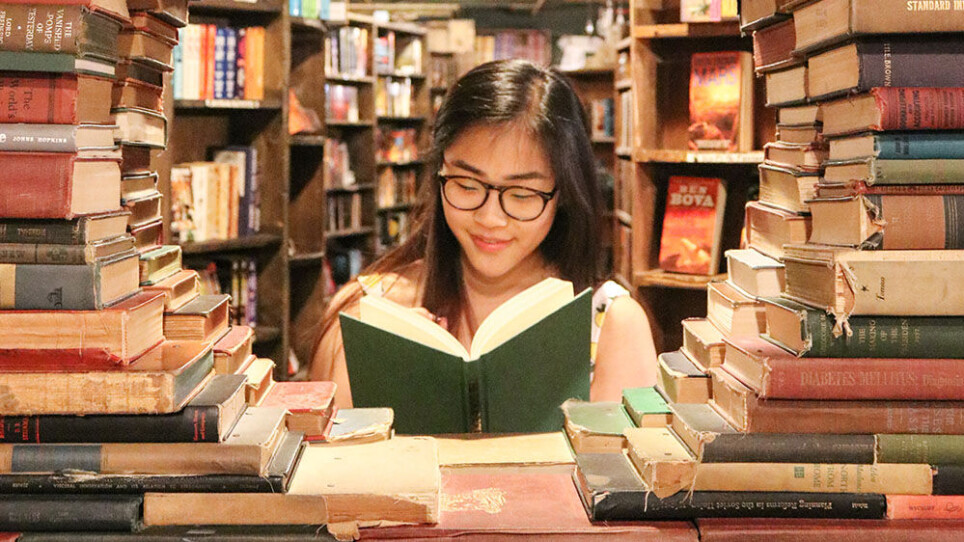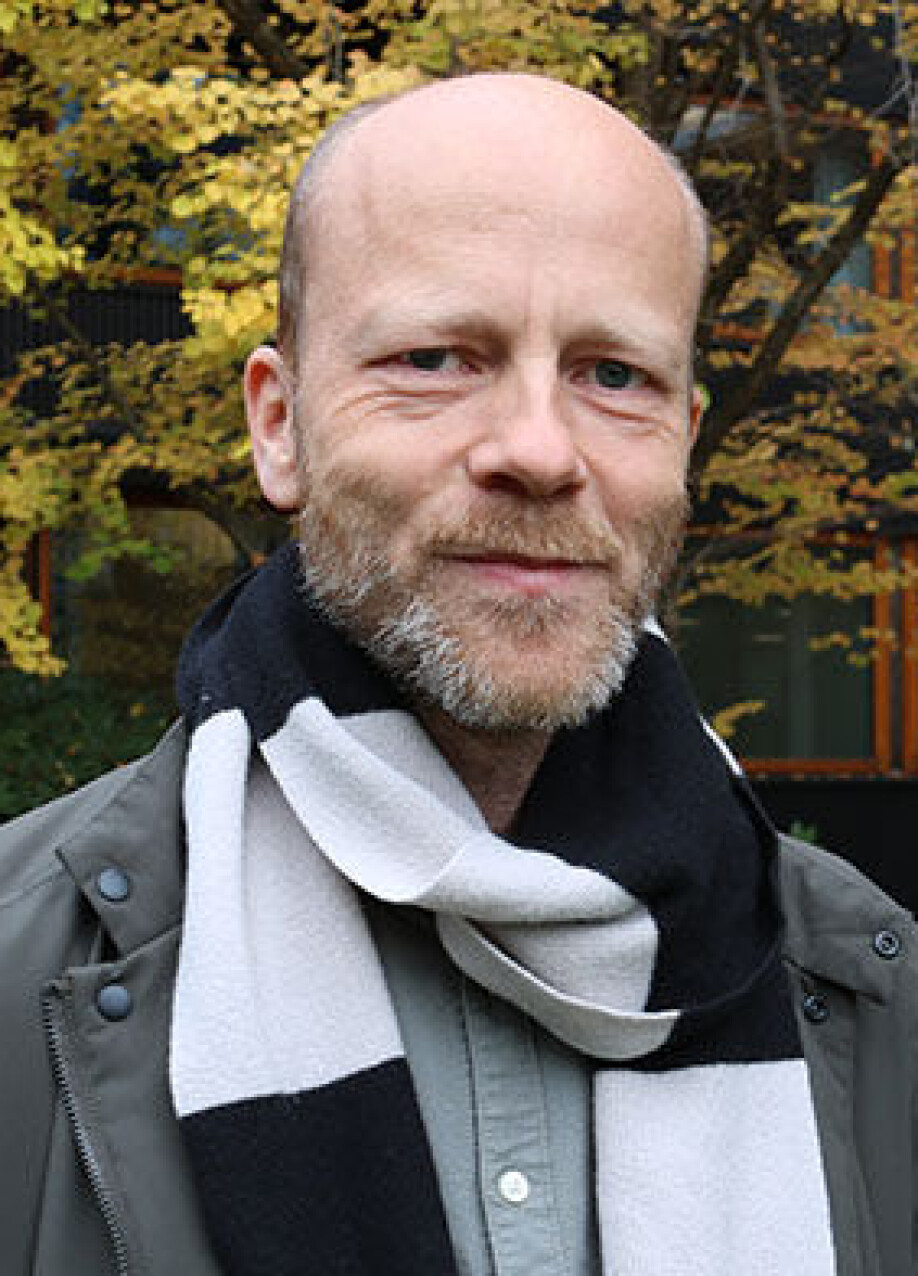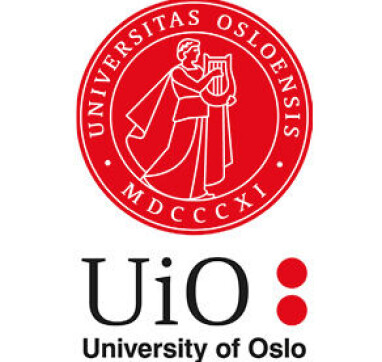THIS ARTICLE/PRESS RELEASE IS PAID FOR AND PRESENTED BY University of Oslo - read more

A green view makes literary history relevant for today's students
Reading literature from multiple eras can give young people an understanding that our perceptions of nature are in a constant state of flux. It can give them new perspectives on sustainable development.
The subject of sustainable development has been part of the curriculum since autumn 2020, and will be included in many subjects.
Mads Breckan Claudi, associate professor at the Department of Linguistics and Nordic Studies, has worked as a teacher in upper secondary school and researches and teaches literature pedagogy.
He has been interested in how to incorporate the subject of sustainable development into the Norwegian curriculum.
“It is about highlighting sustainability from multiple perspectives and using multiple approaches. The subject will be incorporated into the Norwegian curriculum at all levels. There are many opportunities for literary exploration when an answer cannot be found in textbooks,” Claudi says.
In the article Litteraturhistorie naturell he looks at how literature can be read while keeping issues that can be linked to sustainability as a theme in mind.
“This means approaching literature in a way that has been long established in Marxist, postcolonial and feminist literary theory: reading from the perspective of the values, norms and perceptions of reality that are embedded in the text,” he says. “In this context, you can read and pose questions about the kind of perceptions of nature that permeate the text, or what kind of attitudes, views and ways of understanding can be interpreted about the relationship between humans and nature."

Literature brings us closer to people from other ages
In his article, Claudi makes what he calls ‘green readings’ of well-known poems from Norwegian literary history.
By seeing what these poems say about human beings' relationship to their surroundings, he shows how they convey different historically grounded perceptions of nature: from the practical view of nature in the 18th century, via the spirited nature of romanticism, to a modern view that nature no longer has any substantive meaning.
“Insight into historical changes can give students a greater understanding of their own place in history,” Claudi says. "This approach to literature shows that our perceptions about humans and nature are constantly changing, and that they will continue to change. It is fundamental to understand that what we are experiencing now is not an end point, but part of a historical process. To understand what sustainable development is all about requires you to see yourself as a participant in such a process."
Older literature provides interesting access to history because it not only offers insight into what has been, but also allows the story to emerge through an individual or a voice.
“It can bring us close to someone who has lived a long time ago and give us an insight into how people lived, thought and felt in other ages. You can then discover that what appears second nature to us is actually changeable. The ways in which we relate to nature today are a product of historical circumstances,” Claudi says.
Reading older literature from a green perspective
The researcher himself experienced how it was possible to read past perceptions of nature from the perspective of other eras, while working on his PhD thesis and reading Kristofer Uppdal's poetry in light of contemporary polar exploration. This entailed looking at which conceptions related to phenomena such as the Northern Lights, ice, cold and winter.
“Reading in this way provided scope for new interpretations of Uppdal's poetry,” Claudi explains. “It was also striking how the way we view such polar or wintry phenomena has changed fundamentally over the course of a hundred years. At the beginning of the 1900s, the polar regions were something large, unknown, dangerous and threatening, not infrequently portrayed as an image or bearer of spiritual qualities. Today, these regions are something we must manage, protect and look after."
Green readings are not confined to literature that obviously engages with the environment and sustainability. It is about a perspective and an interest, and not about specific characteristics of the literature you are studying. Such a perspective can be applied to many different kinds of texts.

Perceptions of nature make the teaching of literary history relevant
Claudi believes that green readings can invigorate the teaching of literary history by offering a clearer connection to a historical situation. One example is Henrik Ibsen's play The Wild Duck.
In the article ‘Skogens hevn – Ibsens Vildanden i naturlig belysning’ (The forest's revenge – Ibsen's Wild Duck in natural lighting), Claudi reads the play based on the contemporary issue of the exploitation of forest resources, which can be said to lay the foundation for the conflict in the play.
“When read in this way, the play's tragedy can be understood as nature's revenge on people who have violated it, or exploited it too harshly. And it was a relevant subject in its day," he says.
Claudi believes the environment and sustainability are issues that can help make working with literary history more engaging.
“This way of reading literature can open up some new ways of thinking, but it can also revitalise the teaching of literary history,” he says.
The literary scholar believes that such an approach to older literature can open new perspectives both on the texts and on history.
“Such a way of reading allows us to draw other lines of literary history. The work on the various eras has an important role to play in literature teaching, but it does not necessarily have to serve as a gateway to the work on a text,” he says. “We’re unlikely to save the planet by changing how we teach literature, and we don't search through literature to find solutions to today's problems. But if we are to be able to rethink how to organise ourselves as a society, we should be able to look critically at the society in which we live, including the way we understand ourselves and our relationship to our surroundings. Reading literature can help widen our scope of thinking in this regard.”

This article/press release is paid for and presented by the University of Oslo
This content is created by the University of Oslo's communication staff, who use this platform to communicate science and share results from research with the public. The University of Oslo is one of more than 80 owners of ScienceNorway.no. Read more here.




































